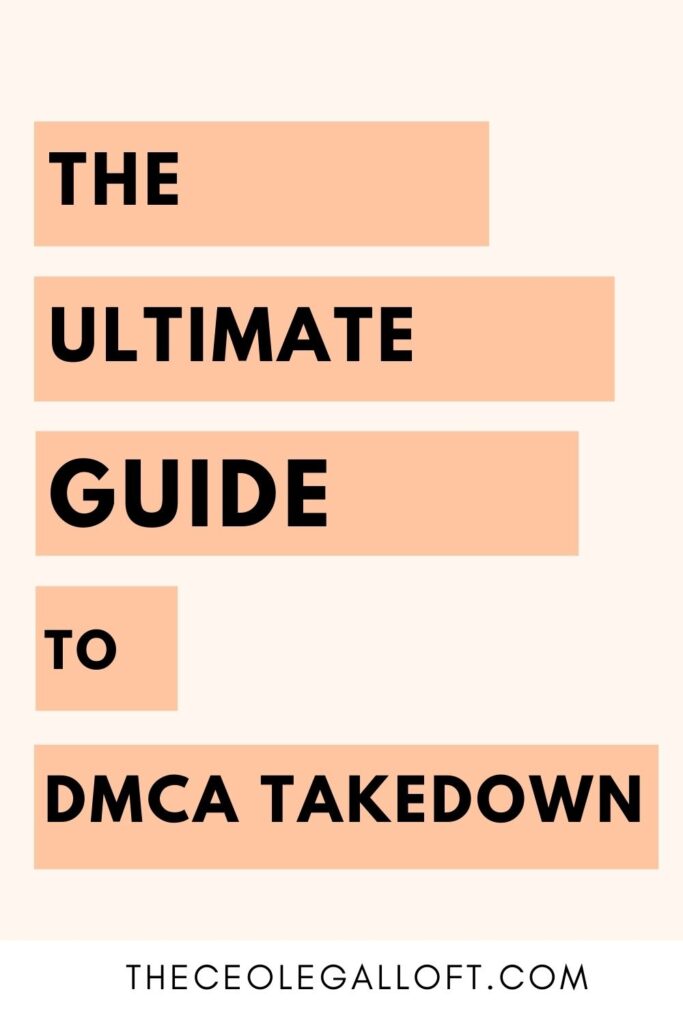Discovering stolen content online is every content creator’s nightmare. When someone copies your original work without permission, it’s not just frustrating but it’s a violation of your rights. If you’re dealing with stolen content or want to prevent it, understanding the Digital Millennium Copyright Act (DMCA) is crucial.
What is DMCA(Digital Millennium Copyright Act)?
The DMCA is a U.S. copyright law that was created to help protect digital content and make sure that it’s used legally and ethically.
The law has five parts, and it does a lot of things to help make sure that copyrighted works are respected and properly attributed. It also establishes a system for dealing with copyright infringement claims and provides safe harbors for certain types of online service providers.
While it might sound a bit complicated, the DMCA is actually a really important law for anyone who works with digital media. It’s helped to make the internet a better and more fair place for content creators and users alike.
So, whether you’re a blogger, social media influencer, or just someone who likes to share things online, it’s a good idea to know what the DMCA is and how it works. With a little bit of knowledge, you can be sure that you’re using and sharing digital content in a way that’s both legal and respectful.
How DMCA Takedown Notices Combat Stolen Content
To get your stolen content removed, you’ll need to file a DMCA Takedown Notice. A DMCA Takedown Notice is a legal tool provided under the Digital Millennium Copyright Act that copyright owners or their representatives can use to request the removal of infringing material from websites and online platforms.
In essence, a DMCA Takedown Notice is a written request to an online service provider, such as a website, social media platform, or internet service provider, to remove content that infringes on the copyright holder’s rights. The notice typically includes information about the copyrighted work, a description of the infringing content, and evidence of the copyright ownership.
The DMCA Takedown Notice is a powerful tool for copyright owners, as it allows them to quickly and effectively remove infringing content from the internet. It also provides a clear process for online service providers to respond to copyright infringement claims when they receive a DMCA takedown request, which helps to ensure that copyrighted works are protected and used in a legal and ethical manner.
It’s worth noting that your DMCA is filed under penalty of perjury. So submitting a false DMCA Notice can have serious legal consequences, including liability for damages incurred by the alleged infringer. Due to this, it’s important to ensure that any Takedown Notice is accurate and submitted in good faith.
What countries use the DMCA Takedown Notice?
The DMCA Takedown Notice is a tool provided under the Digital Millennium Copyright Act (DMCA), which is a U.S. copyright law. However, while the DMCA is a U.S. law, the DMCA Takedown Notice has been widely adopted and used by many other countries around the world.
In fact, the DMCA Takedown Notice has become a standard practice for online platforms and service providers to deal with copyright infringement claims, and many countries have either implemented similar laws or adopted provisions from the DMCA. For example, countries like Canada, Japan, and South Korea have implemented laws similar to the DMCA, while the European Union has adopted similar provisions in its Copyright Directive.
So, while the DMCA Takedown Notice is a U.S. legal tool, it has been adopted and used by many other countries around the world as a way to protect copyrighted works and ensure that they are used in a legal and ethical manner.

When to File a DMCA Notice for Stolen Content
You should file a DMCA Takedown Notice if you discover that your copyrighted work has been posted or used online without your permission.
Here’s when to report your stolen content with a DMCA notice:
- Someone has copied your original content, such as a blog post, article, photograph, or video, and posted it on their website or social media platform without your permission.
- Someone has used your copyrighted work, such as a song or artwork, in a way that violates your rights, such as creating a derivative work without permission or using it for commercial purposes.
- You have discovered a website or social media platform that is hosting infringing content, such as pirated movies or music, and you want to have it removed.
- You have previously requested a takedown that infringes on a copyright requesting removal, but it has not been taken down or has reappeared.
As stated above, you must file DMCA takedowns when you have a good faith belief that your content has been stolen. Filing a frivolous or false takedown notice, you may be liable for damages incurred by the alleged infringer. If you’re not sure whether you have a valid claim, it’s a good idea to consult with a lawyer or seek advice from an intellectual property expert.
Who can file a DMCA Takedown Notice?
Under the Digital Millennium Copyright Act (DMCA), the copyright owner or their authorized agent. This means that only the person or entity that holds the copyright to the content in question, or their designated representative, can file. If you are a copyright owner, you can file yourself. If you are not the copyright owner, but have been authorized to act on their behalf, you can file as their designated agent. In this case, you will need to include a statement in your notice that you are authorized to act on behalf of the copyright owner.
Step-by-Step: How to Report and Remove Stolen Content
Follow these steps to report stolen content and get it removed:
- Identify the infringing content: First, you need to identify the specific content that is infringing on your copyright. This might include a URL or a specific file.
- Identify the online service provider: Next, you need to identify the online service provider that is hosting the infringing content. This could be a website, social media platform, or other online service.
- Draft a DMCA Takedown Notice: The DMCA requires specific information to be included in a Takedown Notice. Most hosts and social media platforms have a form that you can use so you won’t have to draft your own. But if they don’t, then at a minimum, your notice should include:
- Your contact information, including your name, address, phone number, and email address
- A statement that you are the copyright owner or authorized agent of the copyright owner
- A description of the copyrighted work that is being infringed upon
- A description of the infringing content, including the URL or location of the content
- A statement that you have a good faith belief that the use of the copyrighted work is not authorized by the copyright owner or the law
- A statement that the information in the notice is accurate and, under penalty of perjury, that you are authorized to act on behalf of the copyright owner
- Your signature (either physical or electronic)
- Send the DMCA Takedown Notice: Once you have drafted the DMCA Takedown Notice, you need to send it to the designated agent of the web host or platform. This information should be available on the online service provider’s website or through a search of the U.S. Copyright Office’s designated agent directory.
- Wait for a response: After you report your stolen content, you’ll need to wait. The provider is required to act on a DMCA Takedown Notice within a reasonable amount of time.
What is the DMCA takedown process?
The host or service provider is required to act on a DMCA Takedown Notice within a reasonable amount of time. During this time the host or alleged infringer may take down the stolen content or file a counter-notice. If the alleged infringer files a counter-notice stating that they have a good faith belief that the content is not infringing, the online service provider must inform the holder of this counter-notice. If the content remains online and the alleged infringer does not file a counter-notice, the holder can consider taking legal action against the alleged infringer.

How long does it take for a DMCA Takedown Notice to be processed?
The length of time it takes for the DMCA takedown process to be completed can vary, depending on a number of factors.
In general, the online service provider is required to act on a DMCA Takedown Notice within a reasonable amount of time. However, what is considered “reasonable” can depend on a variety of factors, such as the complexity of the claim, the size of the online service provider, and the availability of resources.
In some cases, the online service provider may act very quickly, and the infringing content may be removed within a matter of hours or days. In other cases, the process may take longer, especially if the online service provider needs to verify the claim or investigate the alleged infringement.
If the alleged infringer files a counter-notice, the online service provider must inform the copyright owner or their agent of this counter-notice, and the copyright holder has a certain amount of time to decide whether to take legal action.
In general, the DMCA takedown process can take anywhere from a few days to several weeks or even months, depending on the specific circumstances. If you’re considering filing, it’s a good idea to be patient and be prepared for the process to take some time.
Conclusion: DMCA Takedown Notices help with your stolen content
DMCA Takedown Notices are your strongest defense against stolen content. Whether you’re dealing with stolen blog posts, images, or videos, understanding how to file a proper takedown notice protects your creative work and ensures content thieves can’t profit from your efforts.

+ show Comments
- Hide Comments
add a comment